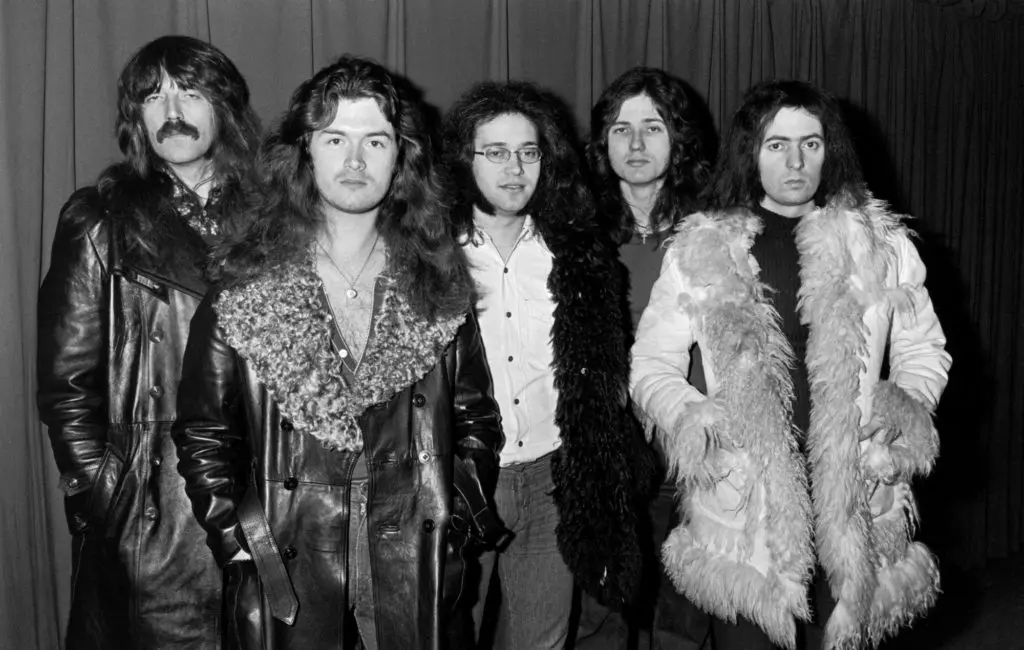It was in the UK that such bands as The Rolling Stones and The Who gained fame, which became a real phenomenon of the 60s. But even they pale against the background of Deep Purple, whose music, in fact, led to the emergence of a whole new genre.
Deep Purple is a band at the forefront of hard rock. The music of Deep Purple spawned a whole trend, picked up by other British bands at the turn of the decade. Deep Purple was followed by Black Sabbath, Led Zeppelin and Uriah Heep.
But it was Deep Purple who held the undeniable leadership for many years. We offer to find out how the biography of this group developed.

Over the more than forty years of Deep Purple's history, the hard rock band's line-up has undergone dozens of changes. How all this affected the work of the team - you will learn thanks to our today's article.
Band biography
The group was assembled back in 1968, when rock music in the UK was on an unprecedented rise. Every year, all the groups appeared, similar to each other like two drops of water.
The newly minted musicians copied everything from each other, including the style of clothing.
Realizing that there was no point in following this path, the members of the Deep Purple group quickly abandoned the “foppish” clothes and mediocre sound, echoing the bands of yesteryear.
In the same year, the musicians managed to go on their first full-fledged tour, after which the debut album “Shades of Deep Purple” was recorded.
Early years
"Shades of Deep Purple" took only two days to complete and was recorded under the close supervision of Derek Lawrence, who was familiar with bandleader Blackmore.

Although the first single, called "Hush", was not very successful, its release contributed to the first performance on the radio, which made an incredible impression on the audience.
Strangely, the debut album did not appear in the British charts, while in America it immediately landed on the 24th line of the Billboard 200.
The second album, "The Book of Taliesyn", was released the same year, once again finding itself on the Billboard 200, taking 54th place.
In America, Deep Purple's rise to popularity has been overwhelming, attracting the attention of major record labels, radio stations and producers.
The American star-making machine was up and running in no time, while the interest of local companies was rapidly waning. So Deep Purple decide to stay overseas by signing a number of lucrative contracts.
Peak of fame

In 1969, the third album was released, which marked the departure of the musicians towards a more “heavy” sound. The music itself becomes much more complex and multi-layered, which leads to the first line-up changes.
Blackmore draws attention to the charismatic and talented vocalist Ian Gillan, who was offered a place at the microphone stand. It is Gillian who brings bass player Glover to the group, with whom he has already formed a creative duet.
The replenishment of the line-up by Gillan and Glover becomes crucial for Deep Purple.
It is noteworthy that Evans and Simper, who were invited to replace the newcomers, were not even informed about the upcoming changes.
The updated line-up rehearsed in secret, after which Evans and Simper were put out the door, receiving a three-month salary.
Already in 1969, the group released a new album, which revealed the full potential of the current line-up.
The record "In Rock" becomes a worldwide hit, allowing Deep Purple to win the love of millions of listeners.
Today, the album is considered one of the pinnacles of rock music of the 60s and 70s. It is he who is considered one of the first hard rock albums, the sound on which was noticeably heavier than in all rock music of the recent past.
The glory of Deep Purple is strengthened after the opera "Jesus Christ Superstar", in which the vocal parts were performed by Ian Gillan.
In 1971, the musicians began work on a new album.
It seemed that it would be impossible to surpass the creative success of “In Rock”. But the musicians of Deep Purple succeed. "Fireball" becomes a new peak in the work of the team, which felt a departure towards progressive rock.
Experiments with sound reach their apogee on the album "Machine Head", which has become a universally recognized pinnacle in the work of the British band.

The track "Smoke on the Water" becomes the anthem of all rock music in general, remaining the most recognizable to this day. In terms of recognition, only “We Will Rock You” by Queen can argue with this rock composition.
But Queen's masterpiece came out a few years later.
Further creativity
Despite the success of the group, safely collecting entire stadiums, internal disagreements were not long in coming. Already in 1973, Glover and Gillian decide to leave.
It seemed that the creativity of Deep Purple would come to an end. But Blackmore still managed to update the line-up, finding a replacement for Gillian in the person of David Coverdale. Glen Hughes became the new bass player.
With the renewed line-up, Deep Purple released another hit "Burn", the recording quality of which turned out to be noticeably higher than that of the previous records. But even this did not save the group from a creative crisis.

There was a first long pause that would not be the last. And it will not be possible to reach those creative heights that Blackmore and dozens of other Deep Purple musicians have conquered in the past.
Conclusion
To sum it all up, Deep Purple have made an impact that cannot be overestimated.
The band has spawned a spectrum of genres, whether it's progressive rock or heavy metal, and despite the rapid growth of the industry, Deep Purple continues to be at the top, collecting thousands of halls around the planet.
The group is true to style and bends its line even after 40 years, delighting with new hits. It remains only to wish the musicians good health so that they can continue their active creative work for a long time to come.



